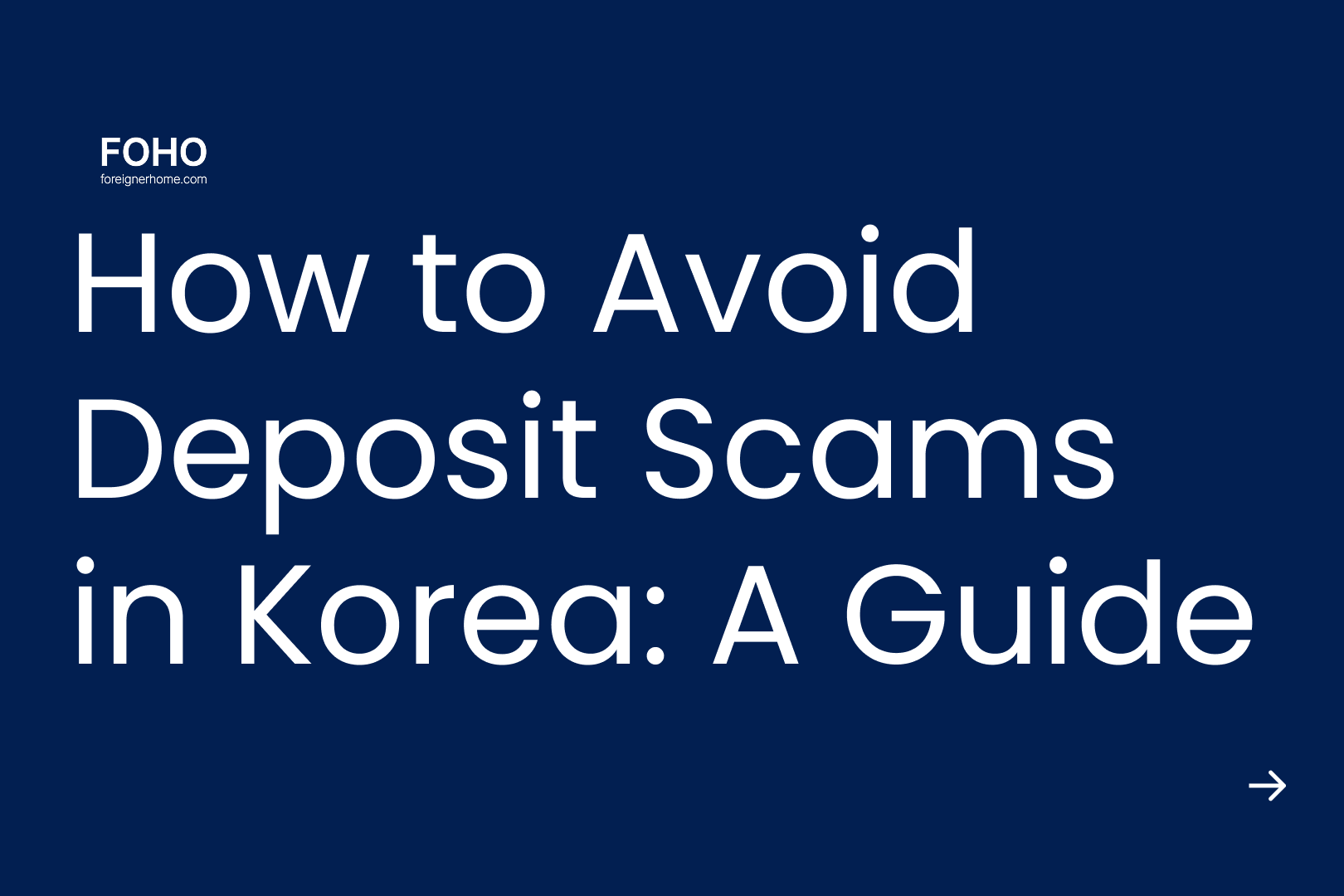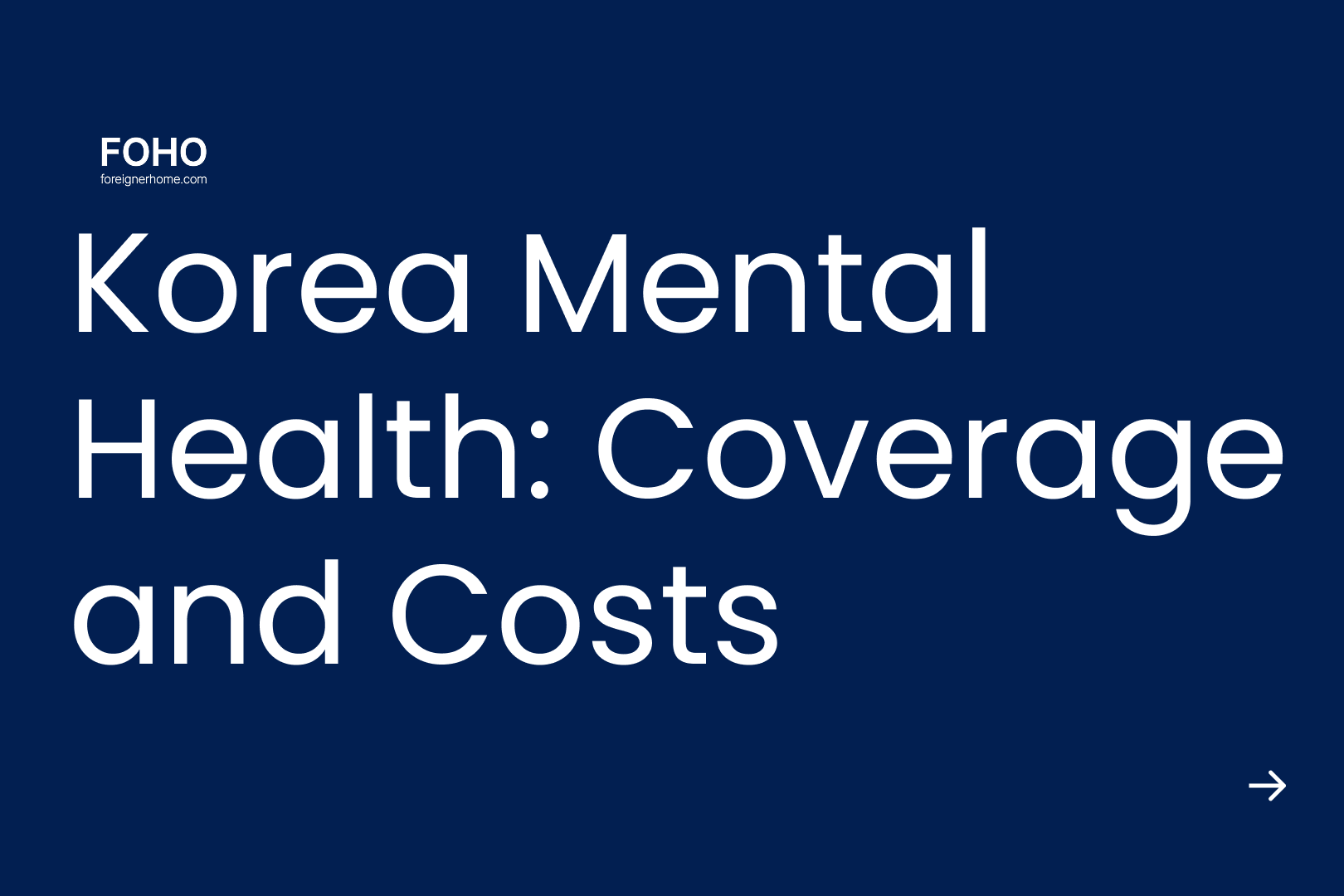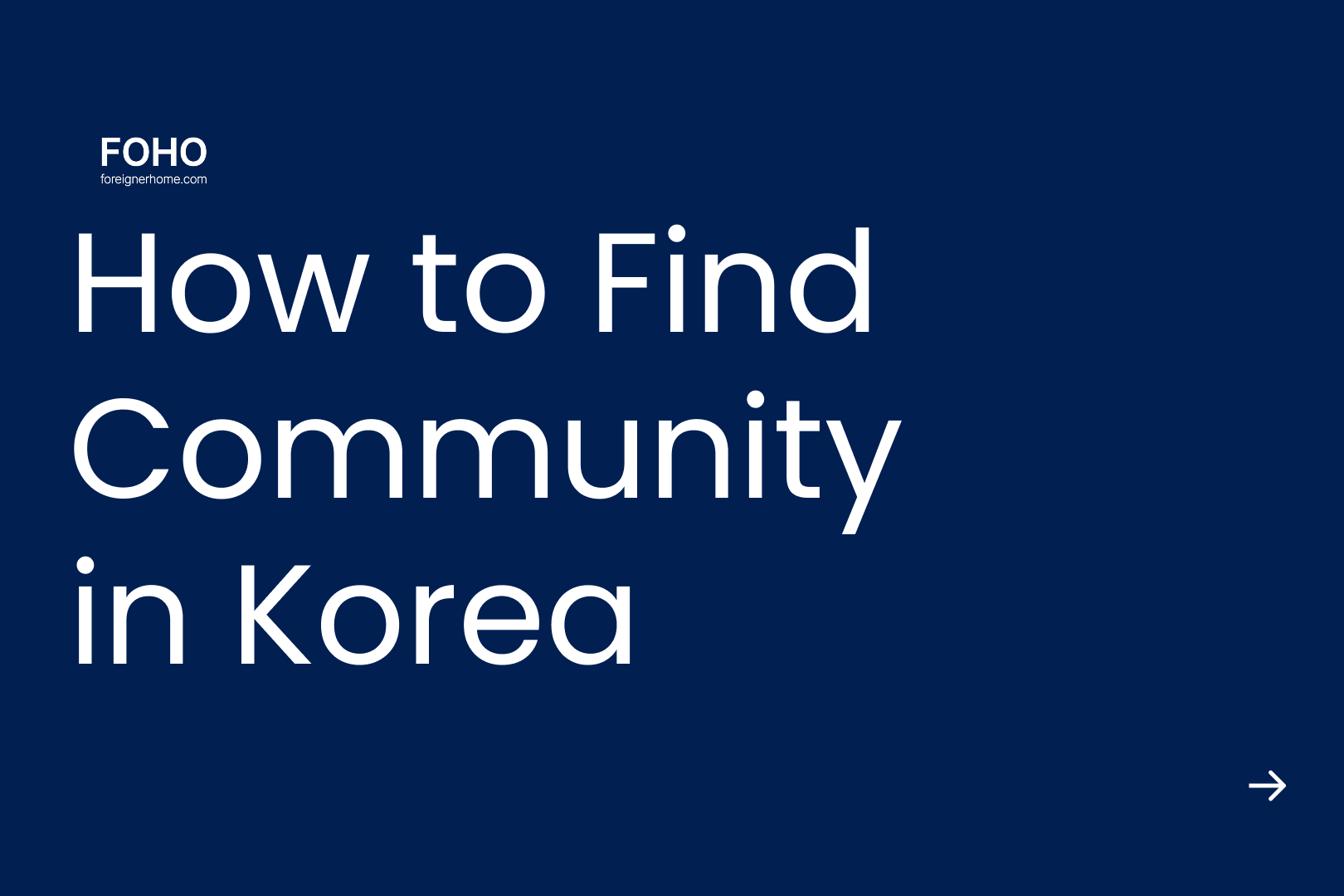FOHOブログ – 外国人のための韓国住まいと生活ガイド
韓国でARCを取得する:外国人居住者のための実践ガイド
韓国での外国人登録証(ARC)取得に必要な居住証明や住宅関連書類について詳しく解説。家賃や住居タイプ別の必要書類、よくある間違いなどを網羅。
Evan Han
FOHOTIPHost

目次
韓国でARCを取得する:外国人居住者のための実践ガイド
韓国に90日以上滞在する場合、外国人登録証(ARC)—正式には在留カード—の申請は必須です。これがないと、銀行での生活に欠かせない銀行口座の開設や携帯電話の契約はもちろん、合法的に滞在を続けることもできません。韓国の外国人向け住宅事情を理解することも、ARCの取得に密接に関連しています。
しかし、この手続きの一部が、新規入国者に一貫して遅延を引き起こしています:居住証明です。
このガイドでは、ARCの申請を最初から最後まで、特に住居に関する書類に焦点を当てて説明します。これにより、よくある間違いを避け、時間通りにカードを取得できるようになります。
ARCが重要な理由
ARCは韓国での公的な身分証明書です。顔写真、ビザの状況、登録住所が記載されており、常に携帯することが求められます。到着後90日以内に申請しなければならず、さもなければ罰金のリスクがあります。手続きには3~8週間かかるので、早めの手続きが不可欠です。
ARC申請チェックリスト
入国管理局に持参するものは以下の通りです:
項目 | 詳細 | ヒント |
パスポート(原本+コピー) | IDページの鮮明な実寸スキャン | 機械読み取り可能なコードが表示されていること。影や指が映らないように |
ビザ発給通知書 | visa.go.kr から印刷したPDF | ビザ所持者向け。紛失した場合は再ダウンロード |
申請書 | 入国管理局またはHiKoreaで入手可能 | 完全に記入すること。黒インクを使用 |
証明写真 | 3.5cm×4.5cm、白背景、6ヶ月以内に撮影したもの | 帽子・サングラスは不可。宗教的な頭飾りは顔が完全に見える場合のみOK |
手数料 | ₩30,000 現金(郵送の場合はプラス₩3~5千) | 収入印紙は現地で購入 |
居住証明 | 申請日から少なくとも60日をカバーする書類 | 詳細は以下を参照 |
その他(該当する場合) | TBテスト、在学証明書、雇用契約書など | ビザの種類による |
居住証明の理解
入国管理局は、申請書に書かれた「単なる住所」を受理しません。合法的にそこに住んでいるという証拠が必要であり、滞在が申請日から少なくともあと2ヶ月続くことを示す必要があります。
正確な書類は、あなたの生活形態によって異なります:
住居タイプ | 提出するもの | 追加注意事項 |
大学寮 | 学校が発行する寮居住証明書 | 寮管理事務所または国際事務所で入手 |
あなたの名義の賃貸 | 賃貸契約書のコピー | 住所、氏名、契約年月日を記載。家主が会社の場合は事業者登録証を追加 |
あなたの名義でない住宅 | 1) 滞在確認書(ホストの署名入り) 2) ホストの身分証明書のコピー(表/裏) 3) ホストの賃貸契約書または所有権証明書 | 3つとも必須 |
ホテル/ゲストハウス/ゴシウォン | 1) 滞在確認書 2) 宿泊提供者の事業者登録 3) 家賃領収書または支払い証明書 | 領収書は現在の滞在をカバーするものでなければならない |
Airbnb | 1) Airbnb予約確認書 2) 確認書 3) ホストの身分証明書 4) ホストの賃貸・所有証明書 | 会社経営の場合は身分証明書の代わりに事業者登録証を使用する |
ヒント: 住居が短期(残り60日以内)の場合は、申請前に延長するか、後で新しい書類で住所を更新できるようにしておく。
ARCの承認を遅らせるよくある間違い
- 質の悪いパスポートのコピー - 携帯電話ではなく、スキャナーを使用すること。
- 証明写真が規格に合っていない - 背景は白、サイズは正確、影がないこと。
- 住居証明に不備がある - ホストの身分証明書や契約書の不備は、不承認の最も一般的な理由です。
- 契約期限が早すぎる - 入国管理局は2ヶ月未満の契約を拒否することがあります。
- 書類が韓国語または英語でない - 必要であれば翻訳してください。
住宅関連書類の求め方
賃貸契約にあなたの名前がない場合、家主やホストからの協力が必要です。以下はその方法です:
- 公式の韓国語フォームを提供する - HiKoreaから "거주/숙소제공 확인서" をダウンロードして、何が必要かを正確に伝える。
- 理由を説明する - 政府登録のためであり、税金や法的トラブルのためではないことを伝える。
- 雛形を提供する - 学校やサービス(FOHOなど)によっては、依頼内容を説明する韓国語の雛形を提供しています。
ARC取得後
引っ越しをした場合は、14日以内に入国管理局または最寄りの区役所に新住所を届け出てください。これを怠ると罰金が課せられます。ARCは大切に保管してください。交換には時間と手数料がかかります。
FOHOはすべてを簡素化できる
ソウルに引っ越してきたばかりの頃は、公共料金の管理に圧倒されるかもしれません。また、ここのシステムは効率的ですが、言語の壁とサービスの断片化が、必要以上に物事を難しくしています。
そこでFOHOがお役に立ちます。各オプションの本当の意味を理解し、大家さんとのコミュニケーションをお手伝いします。これにより、コストのかかる間違いを避け、韓国に来た本来の目的に集中できるようになります。韓国での学生向け住まいや、地下鉄近くの生活を探している方にも、FOHOは適切なアドバイスを提供します。
外国人向けの住まいヒントを手に入れましょう
最新情報をメールでお届けします。
関連記事

Oct 31, 2025
韓国でE-9ビザをE-7-4ビザに切り替える方法
韓国在住のベトナム人および中国人E-9労働者向けガイド。E-7-4ビザのポイント制度、F-2ビザの要件、GMEとSentbeの海外送金アプリの比較を解説します。

Oct 30, 2025
韓国のチョンセ詐欺を回避する方法:完全ガイド
ステップバイステップガイドで、韓国のチョンセ(伝貰)詐欺を回避しましょう。物件の負債確認、登記簿謄本の理解、保証金の保護方法を解説します。

Oct 29, 2025
韓国のメンタルヘルス:NHIS(国民健康保険)の適用範囲と費用
韓国でメンタルヘルスのサポートを受けましょう。外国人向けのこのガイドでは、NHISの使い方、低コストの選択肢、現地での薬の処方箋のもらい方を解説します。

Oct 28, 2025
外国人として韓国でコミュニティを見つける方法
このガイドは、外国人が韓国で友達を作る方法を説明します。Meetup、ローカルクラブ、ソモイム(소모임)などのアプリの長所と短所を学びましょう。
FOHOニュースレターを購読
外国人向け住宅情報をメールでお届けします。